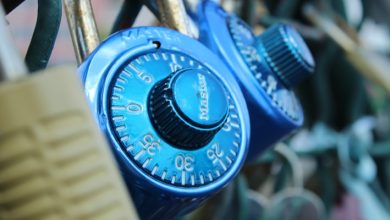How to Securely Manage Your Cryptocurrency Portfolio

- Understanding the importance of security in managing your cryptocurrency portfolio
- Choosing the right wallets for storing your digital assets
- Implementing strong password protection and two-factor authentication
- Backing up your private keys and seed phrases
- Being cautious of phishing scams and other online threats
- Regularly updating your software and staying informed about security best practices
Understanding the importance of security in managing your cryptocurrency portfolio
Understanding the significance of security in managing your cryptocurrency investment portfolio is crucial to safeguarding your digital assets from potential threats. Cryptocurrency, being a decentralized and digital form of currency, is susceptible to hacking, phishing, and other cyber threats.
Implementing robust security measures can help mitigate the risks associated with managing your cryptocurrency portfolio. One of the most effective ways to enhance security is by utilizing a hardware wallet to store your digital assets offline. This reduces the risk of online attacks and unauthorized access to your funds.
Furthermore, enabling two-factor authentication (2FA) on your cryptocurrency exchange accounts adds an extra layer of security by requiring a second form of verification to access your account. This helps prevent unauthorized access even if your password is compromised.
Regularly updating your software and wallets, as well as using strong and unique passwords for each account, are essential practices to maintain the security of your cryptocurrency portfolio. Additionally, being cautious of phishing attempts and avoiding sharing sensitive information online can help protect your digital assets from potential threats.
Choosing the right wallets for storing your digital assets
When managing your cryptocurrency portfolio, it is crucial to choose the right wallets for storing your digital assets. There are several types of wallets available, each with its own features and security measures.
One option is a hardware wallet, which is a physical device that stores your private keys offline. This provides an extra layer of security as it is not connected to the internet, making it less vulnerable to hacking attempts. Another option is a software wallet, which can be accessed online or through a mobile app. While convenient, software wallets are more susceptible to cyber attacks.
Additionally, you can opt for a paper wallet, which involves printing out your private keys and storing them in a secure location. This method is considered highly secure as it is not susceptible to online threats. However, it is important to keep the physical copy safe from theft or damage.
When choosing a wallet, consider factors such as security features, ease of use, and compatibility with the cryptocurrencies you own. It is recommended to diversify your storage options by using a combination of wallets to spread out the risk. By taking the time to research and select the right wallets for your digital assets, you can better protect your investments from potential threats.
Implementing strong password protection and two-factor authentication
Implementing strong password protection and two-factor authentication is crucial when it comes to securely managing your cryptocurrency portfolio. By using a combination of a complex password and an additional layer of security, you can greatly reduce the risk of unauthorized access to your digital assets.
When creating a password for your cryptocurrency accounts, make sure to use a mix of uppercase and lowercase letters, numbers, and special characters. Avoid using easily guessable information such as your name, birthdate, or common words. It’s also recommended to regularly update your passwords and avoid using the same password across multiple accounts.
In addition to a strong password, enabling two-factor authentication (2FA) adds an extra layer of security to your accounts. 2FA requires you to provide a second piece of information, such as a unique code sent to your mobile device, in addition to your password. This means even if someone manages to obtain your password, they would still need access to your secondary authentication method to login.
Many cryptocurrency exchanges and wallets offer 2FA as an option, so be sure to enable it wherever possible. This simple step can go a long way in protecting your funds from unauthorized access and potential cyber threats. Remember, the security of your cryptocurrency portfolio is in your hands, so take the necessary precautions to keep it safe.
Backing up your private keys and seed phrases
Backing up your private keys and seed phrases is crucial when it comes to securely managing your cryptocurrency portfolio. Private keys and seed phrases are the keys to accessing and controlling your digital assets. Without them, you could lose access to your funds permanently. Here are some tips on how to back up your private keys and seed phrases:
1. **Use a hardware wallet:** One of the safest ways to store your private keys and seed phrases is by using a hardware wallet. These are physical devices that store your keys offline, away from potential hackers.
2. **Write them down:** Another simple way to back up your private keys and seed phrases is by writing them down on a piece of paper. Make sure to store this paper in a secure location, such as a safe or a lockbox.
3. **Make multiple copies:** It’s always a good idea to make multiple copies of your private keys and seed phrases. This way, if one copy gets lost or damaged, you have a backup.
4. **Encrypt your backups:** To add an extra layer of security, consider encrypting your backups. This will help protect your private keys and seed phrases from unauthorized access.
By following these tips, you can ensure that your private keys and seed phrases are safely backed up, giving you peace of mind knowing that your cryptocurrency portfolio is secure.
Being cautious of phishing scams and other online threats
When managing your cryptocurrency portfolio, it is crucial to be cautious of phishing scams and other online threats that could compromise your security. Phishing scams are a common tactic used by cybercriminals to trick individuals into revealing sensitive information such as login credentials or private keys. These scams often involve emails or messages that appear to be from legitimate sources, but actually, redirect users to malicious websites designed to steal their information.
To protect yourself from phishing scams, it is essential to verify the authenticity of any communication you receive regarding your cryptocurrency holdings. Be wary of unsolicited emails or messages asking for personal information, and always double-check the URL of any website before entering sensitive data. Additionally, consider using two-factor authentication to add an extra layer of security to your accounts.
In addition to phishing scams, there are other online threats to be aware of when managing your cryptocurrency portfolio. Malware, ransomware, and social engineering attacks are all risks that could potentially compromise the security of your digital assets. To mitigate these risks, be sure to keep your software up to date, use reputable antivirus programs, and avoid clicking on suspicious links or downloading attachments from unknown sources.
By staying vigilant and taking proactive measures to protect your cryptocurrency portfolio, you can reduce the likelihood of falling victim to online threats. Remember to always prioritize security when managing your digital assets and remain cautious of potential scams that could jeopardize your financial well-being.
Regularly updating your software and staying informed about security best practices
It is crucial to regularly update your software and stay informed about security best practices when managing your cryptocurrency portfolio. By keeping your software up to date, you can ensure that you have the latest security patches and fixes to protect your assets from potential threats.
Staying informed about security best practices is also essential to minimize the risk of falling victim to cyber attacks or scams. By educating yourself on the latest security trends and techniques, you can better protect your cryptocurrency investments and keep your portfolio secure.



